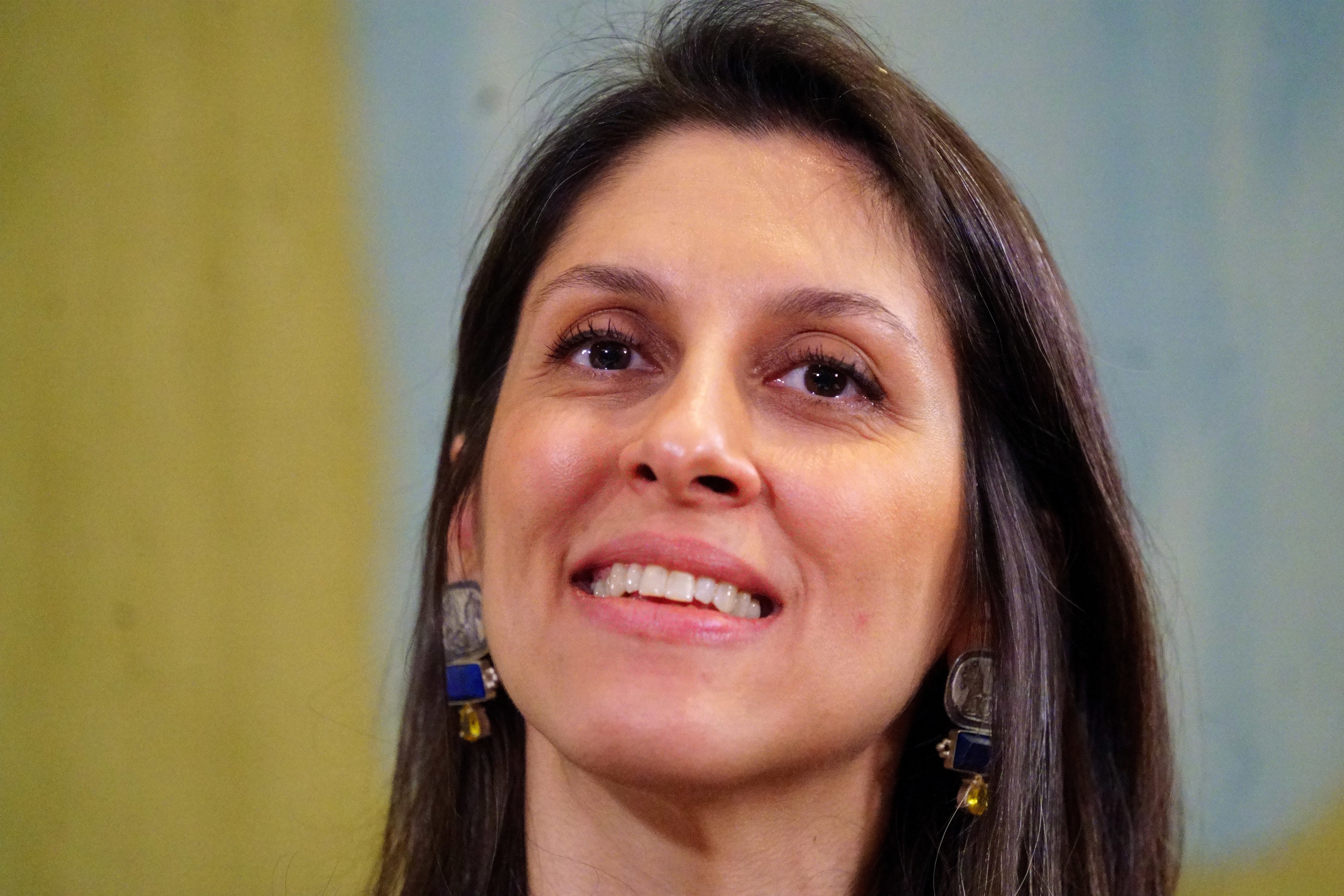Andy Murray near tears as Nazanin tells how she watched him win Wimbledon from prison
Sir Andy Murray asked Ms Zaghari-Ratcliffe about her time in prison in Iran
Your support helps us to tell the story
From reproductive rights to climate change to Big Tech, The Independent is on the ground when the story is developing. Whether it's investigating the financials of Elon Musk's pro-Trump PAC or producing our latest documentary, 'The A Word', which shines a light on the American women fighting for reproductive rights, we know how important it is to parse out the facts from the messaging.
At such a critical moment in US history, we need reporters on the ground. Your donation allows us to keep sending journalists to speak to both sides of the story.
The Independent is trusted by Americans across the entire political spectrum. And unlike many other quality news outlets, we choose not to lock Americans out of our reporting and analysis with paywalls. We believe quality journalism should be available to everyone, paid for by those who can afford it.
Your support makes all the difference.Sir Andy Murray was near tears and he had to pause when Nazanin Zaghari-Ratcliffe told him she watched his 2016 Wimbledon win from prison in Iran.
Sir Andy said Ms Zaghari-Ratcliffe’s story of watching him win Wimbledon in 2016 from her prison cell was “by far the strangest, most incredible story I’ve been told” about someone viewing him play tennis.
Ms Zaghari-Ratcliffe recalled playing an Iranian version of Charades when held in a hospital ward, explaining to the tennis player on BBC Radio 4’s Today programme: “My friends knew that on my list there had to be Andy Murray.
“The people who were with me in that period, they knew you even though they’d probably never heard your name before, they knew who you were, which game you won and that was quite something for me – it felt like a connection, it felt like escape.
“I was close to home all of a sudden and that was through sport, and through something that probably the Iranian government never thought that I would have that way of finding my way and connection to the life I had outside prison.”
Sir Andy later asked Ms Zaghari-Ratcliffe for more information about her “incredible” story, and had to pause as he said: “I find myself getting quite emotional that someone could be treated in that way and just, sorry, yeah, I’d be interested to hear it from your side, how you feel about it all.
“You seem absolutely fine now but I’m thinking if I was in that situation or someone that I knew was in that situation I’d feel angry about that but you seem well.”
Without her family and denied access to books or newspapers, Ms Zaghari-Ratcliffe was granted access to a television with two channels in the summer of 2016 – one showing Iranian soaps and another with Wimbledon tennis matches.

It meant that, from the notorious Evin Prison in Tehran, she could watch Murray secure his second Wimbledon men’s singles title on Centre Court, and she told the British tennis player of how his success provided a rare joy while imprisoned.
“They had no idea what they had given me,” said Ms Zaghari-Ratcliffe, who told a visibly moved Murray the story while guest-editing Radio 4’s Today programme.
“I was always a big fan of you for a very long time,” said Ms Zaghari-Ratcliffe.

“I can’t tell you how joyful it was and I was ecstatic just to see you win but also to think that obviously for a very, very long time I wasn’t sure when I was coming out.”
Ms Zaghari-Ratcliffe was not released from prison until 2022 but, at the time, said that she had resolved to watch Murray play in person at Wimbledon the following year.
“But of course that never happened because I was in prison for such a long time,” she said.
“I thought, ‘I’m just going to go out find your email and write you an email and say I’m very very proud but also you have no idea where I watched you’. It felt like a connection, it felt like escape. I was close to home all of a sudden.”
Sir Andy also asked Ms Zaghari-Ratcliffe questions about her experiences in prison, which appeared to reduce him to tears. “I would be interested to hear how you feel about it all,” he said.
“You seem absolutely fine now, but I’m thinking if I was in that situation or someone that I knew was in that situation, that I would feel very angry about that.”

Ms Zaghari-Ratcliffe replied: “At times I do feel very angry, but I guess there was a point that I decided I should put the anger away and to not carry it with me, because otherwise it will eat me up for the rest of my life.”
She also said that she would “take refuge in the library” reading books.
Ms Zaghari-Ratcliffe, a British-Iranian national, was detained in 2016 as she was about to fly home from a visit to Iran with her 22-month-old daughter.
Iranian authorities alleged she was plotting to topple the government in Tehran. She has always denied the accusations and insisted she had taken her daughter to visit family.




Join our commenting forum
Join thought-provoking conversations, follow other Independent readers and see their replies
Comments